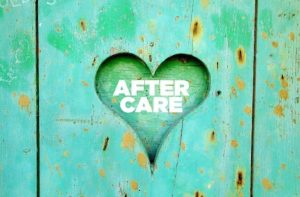
Alcohol, drug and gambling rehab in a private clinic involves change and therefore it should not have been a rosy, fluffy and easy experience. It should have involved being challenged about the way you behave, facing some difficult truths about yourself and recognising the harm you have caused and how you have affected the people you love and care about. It should have led to a resulting change in your attitude.
By the end of your time in private residential rehab you should be aware of exactly what needs to change in your life, confident that you know how to achieve this and you should be feeling optimistic and positive about your future. In the rehab centre you should have been given the tools to live your life clean and sober without needing to resort back to mood altering substances. You should have been advised how to get all the support you need back at home and what support is available from the private rehab centre that you have attended. You should be ready and able to live your life without running away from your feelings by blurring them with drugs and alcohol and without needing drugs and alcohol as an emotional crutch.
Sounds Obvious?
That all sounds obvious and even easy. However it is not. As a result of going to rehab you should have changed – but when you go home everything around you is likely to be exactly the same as when you left it and this will give you quite a jolt. It would be all too easy to just go back to that place that you left some weeks ago before going into rehab and drink or use again. This is in some ways the hardest challenge – to put into action what you have been taught when the temptation to go back to your old ways is there. Many people stumble at this point.
Follow the guiding principals
The important thing to do is to put into action STRAIGHT AWAY what you have been taught. This means attending 12 Step Fellowship meetings (AA and NA) even on Zoom if they are not available face to face. You need to get yourself a sponsor at the fellowship meetings and start to work your 12 Step programme with him or her. It is important to choose a sponsor of the same sex, as the relationship between you in terms of getting to know one another and the intimate details you may need to reveal is likely to be close. In your first weeks out of treatment you may be advised to attend a meeting every day (the so called ’90 meetings in 90 days’) – but you should attend at least 5 meetings a week.
Make use of clinic aftercare
You should also attend aftercare at the clinic you attended. Here at The Haynes Clinic this is offered for a day at week – on a Friday – and involves a full day’s therapy plus an aftercare group solely for those who have completed their programme and returned home. The focus of this is support and advice for problems and issues you are facing in your home and outside life. It is also useful for keeping up with old friends that you have met through the clinic and meeting the people newly in who are facing the journey you have been on. You are also a beacon of hope to them, showing that it is possible to go through treatment and emerge the other side on a new and more positive way of life.
Finally…
When you go home it is important to follow your 12 Step Programme, building into your life the new disciplines you have learnt from meditation / prayer in the morning through to inventory at the end of your day.
If you do as advised, working your addiction rehab programme, getting a sponsor, attending aftercare here at the clinic as often as you can and attending 12 Step fellowship meetings, there should be no reason for you to relapse.
If you or a loved one are struggling we can help you stay stopped! To find out more or speak to an addiction’s specialist click here to request a free assessment or alternatively you can call us on 01462 851414.
